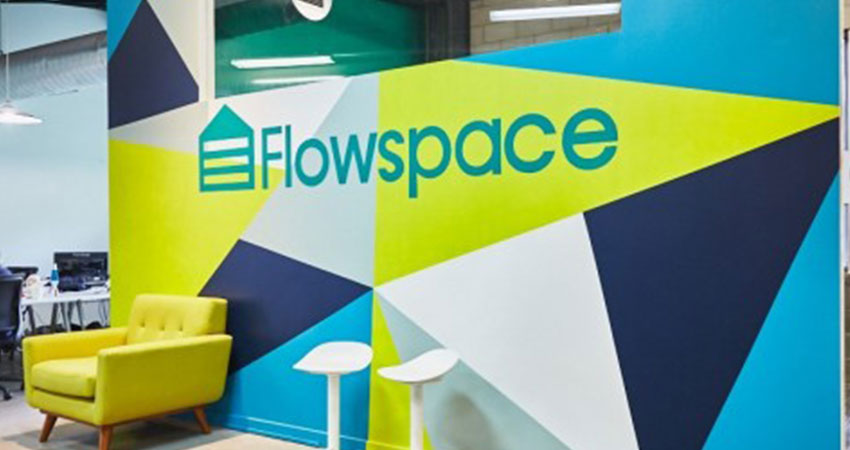Flowspace, a provider of warehouse-on-demand software and services, has raised $31 million in a new round to expand its business and build on capabilities like predictive analytics to help retailers achieve fulfillment network optimization through precise fulfillment hub and inventory positioning.
The series B round was led by BuildGroup, with participation from existing investors Canvas Ventures, Industrious Ventures, Moment Ventures, 1984 Ventures, eGateway Capital and Y Combinator. To date, Flowspace has raised $46 million in venture capital.
“As we continued to develop our platform, we were introduced to BuildGroup, and loved that they were former operations folks with a deep understanding of our space and business model,” said Ben Eachus, co-founder and CEO of Flowspace.
Flowspace’s cloud-based platform is used both by third-party logistics providers and other owners of commercial/industrial space who have excess capacity, and by brands looking for more flexibility in their fulfillment network model vs. signing long-term leases. Its network provides access to hundreds of fulfillment centers nationwide.
“We have a tremendous opportunity to continue to go deeper in helping brands accurately predict their inventory needs,” said Eachus. “Increasingly, brands are handling fulfillment in a distributed fashion. It’s not just about providing flexible (facility) capacity, it’s about integration, figuring out where the order should ship from and where the warehouse needs to be. It’s been a core focus of ours for the last two years, and certainly accelerated over the past year.”
Eachus said a key focus of the latest funding round will be to build out the Flowspace platform, particularly hiring talent to help expand its predictive analytics capabilities.
Many of Flowspace’s brand customers been forced to not only go digital in the past year due to the pandemic, but to go omnichannel in a hurry as customer demand is coming to them from many places at once, Eachus said. The pandemic rush to ecommerce fueled a 10x bump in orders processed through the Flowspace platform during 2020, he said.
“Multichannel has typically meant, selling in physical stores and through a web store, but increasingly brands have gone omnichannel, selling in many channels at once, including marketplaces and their own site as well as other places,” Eachus said. “So, they need someone to help them enable fulfillment to wherever their customers are.”
He said today’s brands need not just the flexibility of short-term fulfillment space, but also the ability to provide at least two-day shipping to most of the country to satisfy consumer expectations set by Amazon Prime.
“They need to offer faster and cheaper delivery, and that means product in different locations,” he said. “While many of them can afford the risk of signing one lease, when they sign three of them, which is what you need to get to two-day saturation, it becomes challenging. So increasingly, they’re outsourcing in order to make that happen.”

